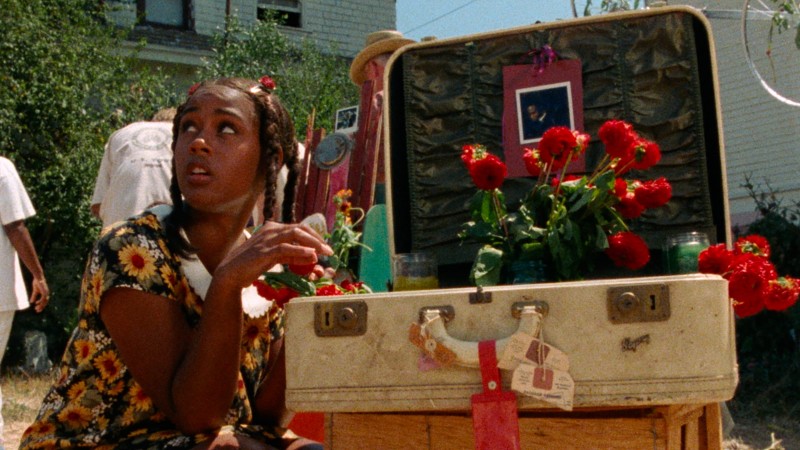Getting Baseball Right: A Conversation with Roger Angell

Over his nearly seventy-five years as a New Yorker writer, Roger Angell has worn many different hats: fiction editor, reporter, poetry contributor, book reviewer. But he is most beloved for his writing on baseball, which began appearing in the magazine in the early 1960s and became a long-running regular column. With his sharp eye for the nuance and drama of the game, deep knowledge of its history, and knack for placing it within the wider context of American life and culture, he has brought new artfulness to the genre of sportswriting, suffusing it with the passion of a true fan and chronicling some of baseball’s most extraordinary moments.
In the spring of 1989, as Angell recalls, “all these baseball movies were around”—Field of Dreams and Major League were in theaters, and The Natural, Bull Durham, and Eight Men Out had been there recently—and he decided to dedicate a column to assessing the way American movies, past and present, depicted the great American pastime. The result was a classic piece, originally published July 31, 1989, in which he considers several films and concludes that Bull Durham is the first one that really “gets baseball right”—by avoiding both technical inaccuracies and too reverent an approach. In anticipation of our new edition of Bull Durham, which includes excerpts from that column by Angell, I spoke with the indefatigable ninety-seven-year-old writer about the film, the cultural shifts that were transforming the sport at the time of its release, and how the intervening years have made the way it undercuts the “national dream” of baseball even more resonant.
Can you reminisce a bit about the writing of the piece?
I’ve been a baseball writer at the New Yorker since the early sixties, writing sizeable pieces several times a year, so this was a natural subject for me because all these baseball movies were around. And I remembered Bull Durham. I think Field of Dreams had just come out, which made me gag, and so I put it all together. I’d met Ron Shelton, and we’d talked about all this, so it was very much on my mind.
Now, I want to put another baseball item about Ron Shelton—which is so interesting— in here. Before he made Bull Durham, he’d been an assistant director and screenwriter for a wonderful movie with Nick Nolte called Under Fire, which isabout the Sandinista Revolution in Nicaragua. And in that movie, there’s a Sandinista guerrilla fighter who wears an Orioles cap and you become aware of it—it’s one of the characters. And in the middle of the movie there’s a continuous shot—it’s not faked in any way—where he grabs a grenade and throws it up into a bell tower—an enormous throw, like throwing from beyond center field, up into the air. And it goes up into the bell tower and blows it up. And I’m sitting in the movie, I’m saying, “What an arm! What an arm!” So when I got to know Ron Shelton, he said, “Yeah, that guy, that actor, was a major athlete at”—can’t remember which Big 10 university—“and baseball was only one of his sports!” And I think that Shelton also played minor-league ball. Later in the movie, the guerrilla says, “Give my regards to Dennis Martinez!”—the Nicaraguan pitcher with the Orioles then. [laughs] So this was inside baseball in an earlier movie.
And another thing I want to say right away is that when writing that piece, I forgot about a wonderful baseball movie made in the midseventies, which is about a barnstorming black baseball team. It was called The Bingo Long Traveling All-Stars & Motor Kings, with Richard Pryor and James Earl Jones. I wish I’d included it.
As you said, baseball movies were having a big moment, and in your piece you isolate Bull Durham as the one that most gets it right. Did you see any of the ones that came out in the next few years?
Sure! I saw them all, I think.
Any other standouts in your memory?
A League of Their Own is a terrific movie. I loved it. Everybody loved that. Of the movies of that time—I think I wrote this at the time—Field of Dreams had just come out and everyone was weeping and exclaiming over it, and I could hardly stand it, it was so sentimental. Maybe Field of Dreams was the worst. There’s a moment in Field of Dreams where James Earl Jones is talking about the good old days of baseball, the early 1920s. He says, “Baseball was good then, and we were good.” Now, just wait one minute, there. Baseball at this time didn’t allow any African Americans or minorities to play. The World Series had just been fixed in 1919. A player had been killed by a pitch. And the Ku Klux Klan was marching in Washington. Those were the good old days in baseball? And the world was good? Give me a break!
Not a very enlightened viewpoint for 1989.
Yeah. The sentimentality of baseball is something America wanted to believe in. This is what so many of those baseball movies are about: what a wonderful pastime, how sweet it is, and all the players are good. It’s kind of a national dream.
The idea in Bull Durham that reading Walt Whitman could somehow make you a better baseball player, there’s something in there of this American dream, don’t you think?
I always try to avoid this in writing about baseball, because the great thing about baseball is that it is really a fabulous game. Nothing else like it. And friends of mine who don’t follow baseball, near the end of the season they get on board a little bit for the playoffs and the World Series, and every time, they come to me and they say, “Wow, this is really a great game! I’ve figured this out! I can see it!” But this dream that it’s all about purity and boyhood dreams and innocence was so strong, and it all played out later on. Everything we’re talking about in discussing Bull Durham all played out in the eighties and nineties during the baseball wars, the economic wars, the player strikes, and the free-agency fight. Was it a sentimental, beautiful game that the players ought to be playing for fun—which many, many people believed? Or was it a very difficult sport that involved professionals? And that underlies everything in Bull Durham—well, not everything, because the other great part of Bull Durham, as I wrote, is the sex. There aren’t many American movies that are as open about sex as this. Which also makes it great.
So Bull Durham does undercut that sentimentality a bit.
I mean, Shelton had played ball and knew how hard it was and how terrific it was. The game is hard, and it’s very beautiful, and it’s difficult to do well. Most people don’t do it well. And Crash Davis in the end is not quite good enough. A standard thing in baseball: people get sent down, they’re not quite good enough. Happens all the time.
Do you think the eighties and nineties changed baseball fans’ ideas about baseball?
A lot of people, a lot of veterans, stopped being baseball fans, or so they claimed for a while, because they wanted guys to play for the fun of it. Which they’d never been doing. I mean, they were serfs. They belonged to the clubs. They couldn’t go on somewhere else, and they had to take the money that the owners paid them. And after the baseball wars were over, they had achieved free agency, and they could move around and in the open market earn what they were worth, which turned out to be many millions of dollars. Fans saying they’re just doing it for the money is just nonsense! They’re paid exactly what they’re worth in the open market, which is a huge amount for very successful players. The other thing that is true is that contemporary baseball players care about playing well as much as they ever did. They’re the best players who ever played, physically. And they deeply care about doing well. They don’t want to be shown up. They have a lot of pride involved. This is what motivates them, not the money.
What’s your team?
I don’t have a team. I write about all teams.
Any favorite players this season?
I became a real Yankees fan again a little while back when Joe Torre was managing, because he was so terrific. I was an immense fan of Joe Torre, who was, from the players’ point of view, the best manager around. He never threw a player under the bus.
Have you watched Bull Durham since writing this piece in 1989?
I have it at home, and I replay it now and then. And whenever it comes up I watch it again. I know it by heart. It’s a terrific movie. Very funny and moving and has a sort of a no-nonsense air about it in the middle of all the laughs and the comedy and the sex and everything. It’s self-certifying.
There’s a part in the piece where you talk about the way things like images of Pete Rose playing live in your mind. You say, “These are memories, but they’re crisp and clear, and I don’t think they’ll ever go away. They make a great movie.” Do you have any other baseball memories that live like movies in your mind now?
Dozens and dozens. How certain players batted, or certain moments in certain games. Of course. I mean, every old fan has those. I can see almost the exact pitches when in 1977 Reggie Jackson hit three home runs in three successive at bats against the Dodgers. Against three different pitchers. It’s something that’s never been approximated. I predicted the second home run, but I didn’t predict the third, because nobody predicts miracles. An extraordinary moment in baseball history, and I remember that. But I remember all kinds—with a little effort I can bring back all kinds of baseball memories. Not just home runs. And I won’t go into the trouble with baseball now, which is that at the end of every day, Major League Baseball presents highlights from all around the league, so you see nothing but home runs or great catches—over and over again—and all the waiting and the slower parts of baseball, which are so essential to it, are taken away. But that’s a separate issue. Back to Bull Durham; the great thing about itisit really stands up—it’s such a pleasure for all of us.




